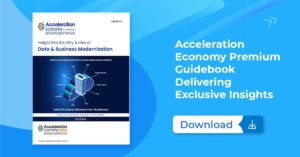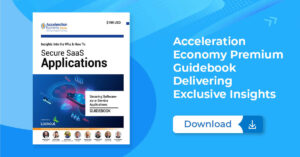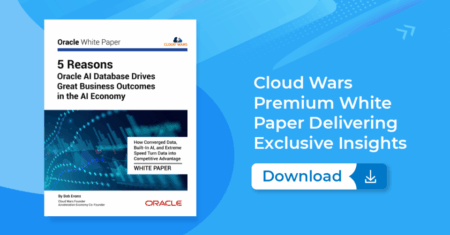Businesses increasingly rely on artificial intelligence (AI) and machine learning (ML) to make better products, drive operational efficiency, optimize customer sales and service, and improve how they go to market. The value of AI and ML technologies is only as high as governance standards that are in place. And those standards require the application of policies and frameworks.
Complicating the relationship between AI and data governance is the fact that AI itself is also being used to help manage an organization’s data and governance processes. This is a tricky balance. Ultimately, machines are there for automation and speed. Human practices, review, and verification steps as they relate to data gathering and management must be in place.
Let’s explore this balance and where things are headed.
The Relationship Between Data Governance and AI
In practical terms, data governance is where risk management meets ethical standards. The policies and practices manage how your people, software, and machines use and apply data — and now they must factor in AI and ML. You don’t want to be that executive splashed all over the headlines when your AI’s use of unreliable data, without proper controls, causes damage to your brand, your business, or worst of all, your customer relationships.
In business terms, data governance is an organizational framework that applies to how data is acquired, managed, and secured by your organization. With the share of data work done by AI increasing, it’s more important than ever to have a data governance strategy in place. Here are a few reasons why data governance is so important:
- It empowers your organization to trust the integrity of AI and ML models by ensuring that data originates from reliable sources. For example, retailers rely on streamlined, accurate supply chains to source and deliver the right products and inventory. This optimizes supply and demand to meet customer expectations and stakeholder targets.
- It provides verification processes so you can trust your ML models and more easily articulate findings generated from your AI output. In a sales and marketing use case, this means extracting, analyzing, and predicting buyer behavior to put the right offer in front of the right customer at the right time.
- It ensures that your ML models are instructed to follow your organization’s principles and values. This is especially critical in the medical and pharmaceutical world, where AI is being used to synthesize data across multiple sources to identify potential medicines, vaccines, and even cures.
- It applies integrated security practices — data, physical, and access — to protect intellectual property, customer data, and competitive data.
- It maintains compliance with local, regional, and country-specific data privacy laws. These range from Health Insurance Portability and Accountability Act (HIPAA) and Payment Card Industry Data Security Standards (PCI DSS) to the California Consumer Privacy Act (CCPA) and the European Union’s Global Data Protection Regulation (GDPR).
Which companies are the most important vendors in AI and Hyperautomation? Click here to see the Acceleration Economy Top 10 AI/Hyperautomation Short List, as selected by our expert team of practitioner-analysts
AI Applied to Data Governance in Organizations
You can find the essentials that should be part of any data governance framework in my report “Why and How Modernizing Data Governance Will Dazzle Customers and Grow Revenue”. This is a solid base from which to start.
But today, as business, tech, and data leaders apply AI and ML to bolster data governance and get data and insights into the hands of their teams, they are finding that AI itself can be a valuable tool to automate data governance policies as well. Here are three use cases for applying AI in your data governance policies and practices.
AI Accelerates Data Democratization to Empower Teams
Traditional approaches to data governance are typically based on company policies that are implemented across organizations in top-down fashion. However, these policies do not reflect the way business teams or individuals actually interact with data. Business and technology leaders are betting on the promise of AI and machines to wrangle and crunch data in order to get insights into the hands of their stakeholders to make decisions faster. This requires proper controls as part of your data governance approach. Otherwise, your employees may not know the correct process for using and sharing data. AI can automate monitoring and enforcement of how data is applied and managed, as well as who has access, all while providing insights on any required changes or optimizations.
AI’s Real-Time Governance Capabilities Increase Speed, Enable Scale
AI can provide real-time data governance checks and updates. It can also help your organization make real-time adjustments to data and governance efforts. Both of these tasks were previously handled by data managers, which took significant time and effort.
For example, a change to data governance policy usually results in a new process being developed and put into place. This might also include crafting and launching new training courses on specific topics, such as handling personal identifiable identification (PII). This work traditionally takes weeks or months when undertaken by humans. Another example is handling huge volumes of unstructured data that is gathered from multiple sources to streamline supply chains and personalize customer experiences. Today’s governance policies may call for a human to scan petabytes of this unstructured data, which would take years and be cost-prohibitive. But with AI models as part of the governance process, the task can be completed in a fraction of the time, by machines.
AI Improves Always-On Data Security and Integrity
Security and data privacy are also major components of your data governance program. AI can automate analysis and monitoring of data privacy, compliance, and security. For instance, when a data center breach occurs, data managers can train an AI-based tool to identify cyberattacks. AI can then identify patterns typical of cyberattacks and notify security teams and other authorities before data is compromised. This adds another level of security and protection and, unlike human resources, AI technologies can monitor data transmissions, which is a 24/7, 365-days-a-year requirement.
Final Thoughts
All of this can be a bit daunting because the use of AI technology, and its underlying capabilities, are advancing so rapidly. As one executive I chatted with recently defined AI’s role in managing data governance: “It can be like the fox guarding the chicken coop if you are not thoughtful.” However, with proper data governance controls and thoughtful application of AI and ML to automate key governance processes, you can accelerate the use of your data to drive results. And that’s where we’re all trying to do.
Want more tech insights for the top execs? Visit the Leadership channel:












